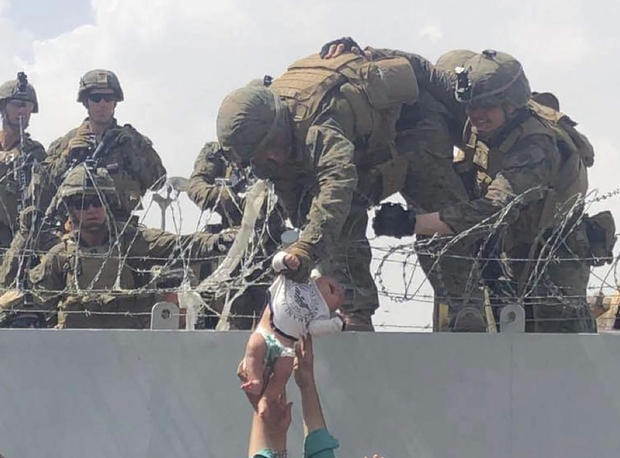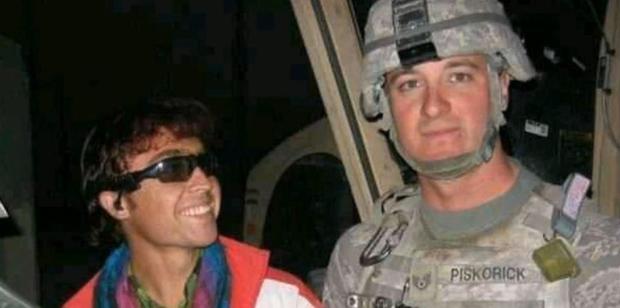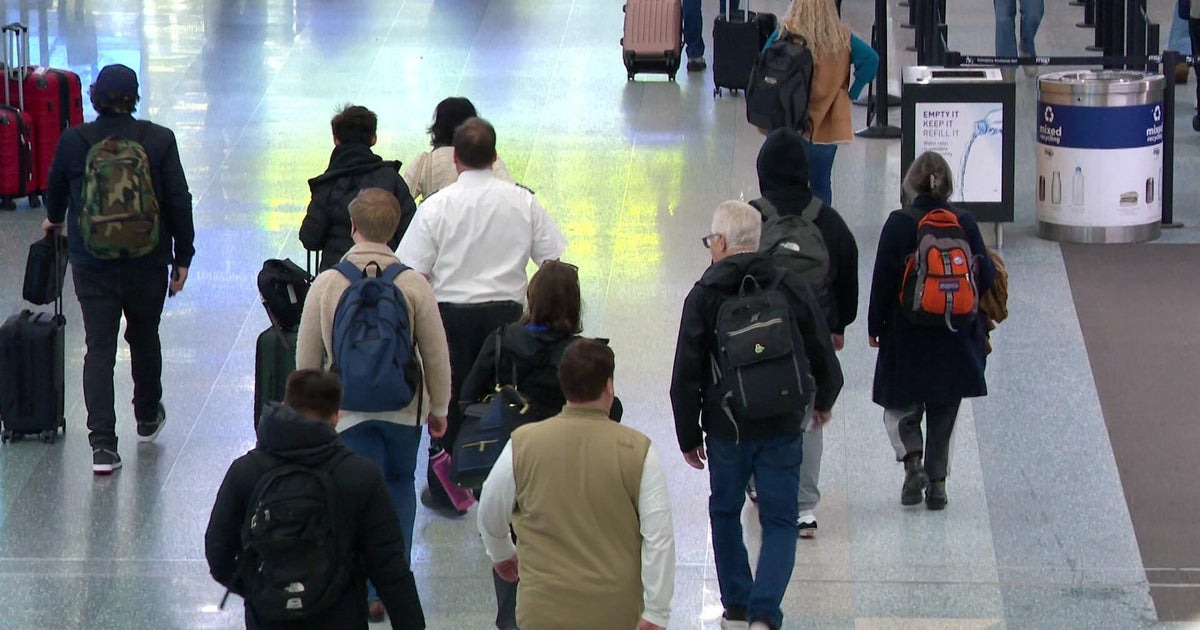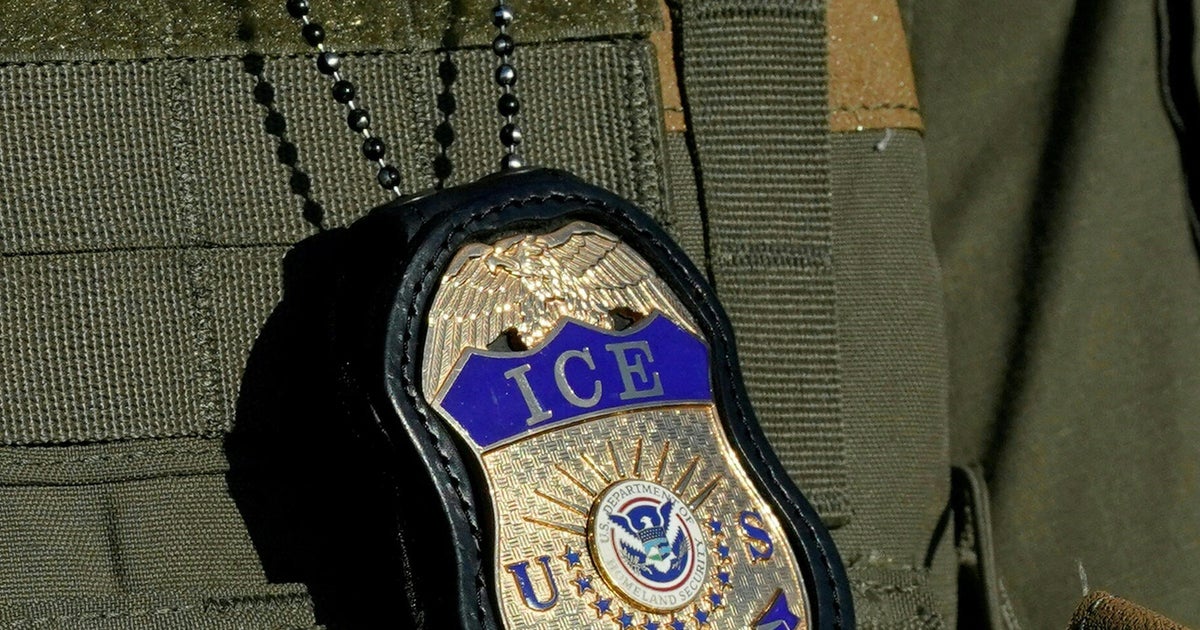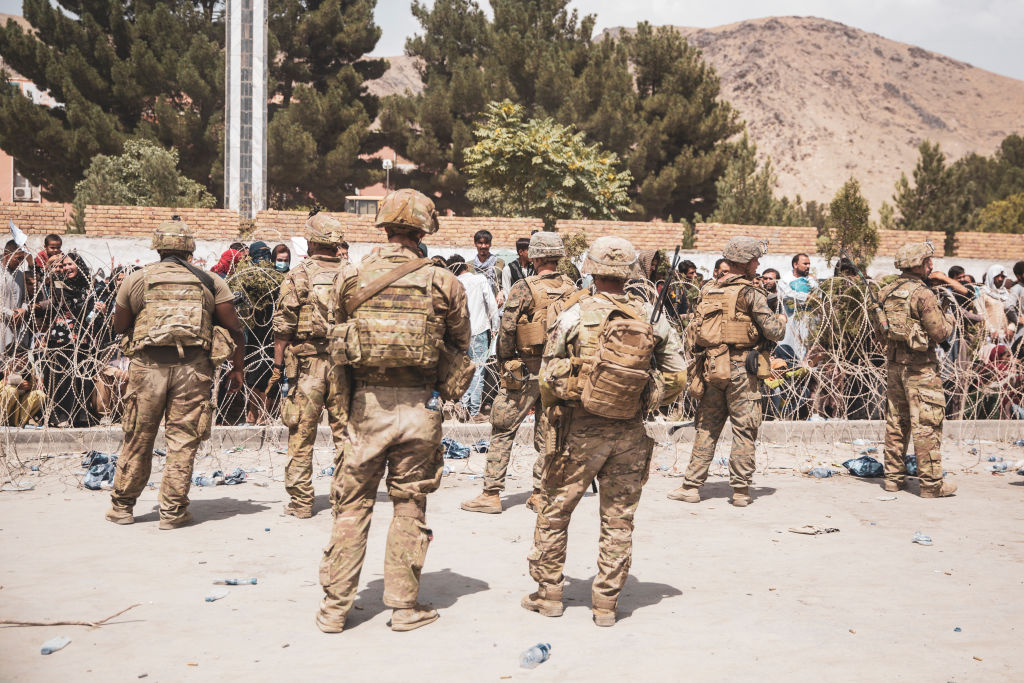Year after U.S. withdrawal from Afghanistan many Afghans who helped the U.S. still trapped and living in fear
Kabul — It was exactly one year ago on Tuesday that the U.S. military completed its drawdown of troops from Afghanistan. After 20 years of fighting, it was America's longest ever engagement in a war. The weeks before the final withdrawal were chaotic, as thousands of Afghans flocked to Kabul's airport in a desperate bid to flee their country.
That chaos has come to define President Biden's botched withdrawal following the Taliban's rapid takeover. It triggered the collapse of the U.S.-backed government and Afghanistan's national army and drew tens of thousands of terrified Afghans to Kabul's main airport, begging to be air-lifted to safety. Some even passed their young children to soldiers over the perimeter wall, hoping that at least they could be saved.
A suicide bombing amid the crowd, carried out by the Afghan affiliate of ISIS, killed almost 200 people, including 13 U.S. service members.
A year later, CBS News correspondent Imtiaz Tyab returned to the Afghan capital and found Kabul quiet. All that was left to remind the world of the horrors and mayhem of late August 2021 were fragments of clothing caught in razor wire.
Unseen in Kabul and other places across Afghanistan, however, are the people who were left behind. Former interpreter Syed Mortaza Wafa is one of them.
Tyab met him in a safehouse, but Wafa never really feels safe. CBS News filmed the interview on smart-phones, so as not to draw the Taliban's attention to his location.
"They always called me 'American spy,'" he said of Afghanistan's Taliban rulers. "They're still searching for me, to find me."
Wafa was never a spy, but the Islamic extremist group considers him one because he spent three years working as a translator for the U.S. Air Force.
"I was very close to the United States Air Force," he said.
Wafa was based at the sprawling Bagram Airfield, which was the largest U.S. military base in Afghanistan.
A year after the last American forces left, U.S. Air Force Master Sergeant David Piscorick (Retired) is still desperate to get Wafa out of Afghanistan.
PIscorick believes his former Afghan colleague's life is in danger.
"He is. He's always been a very truthful individual, especially while we were, you know, working side by side and hand in hand," Piscorick told Tyab. "I have no reason to doubt whether or not he's in danger."
It's unknown exactly how many Afghan translators who worked with the U.S. military and its allies and partners are still trapped in Afghanistan.
According to the U.S. government, 17,000 Afghans, including Wafa, have submitted applications for what are known as Special Immigration Visas. Another 74,000 are still said to be working their way through the highly complex submission process to obtain one.
Wafa told CBS News that, one year on, too little is being done to improve things for people like him. Tyab asked him what he would most like to say directly to President Biden if he had the chance.
"Help the translators to get in safety," he said. "We helped Americans. So, why he cannot help all those translators who left behind in here in a very hard situation?"
It's a question the Biden administration has yet to answer, a year after the end of America's longest war.
